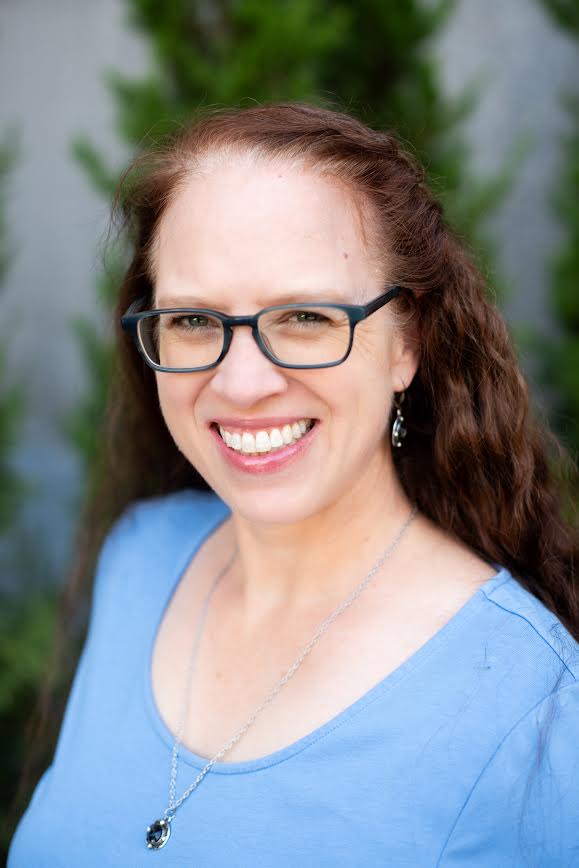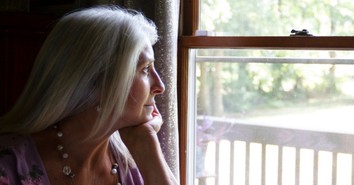Is Foster Care for You?

In mid-October 2018, while I was operating my booth selling doll clothes at a local outdoor festival, my husband popped by waving a brochure and saying, "I think we should foster with this agency!"
Thus began our fostering experience. I had been interested in becoming a foster parent for years, given my experience as a foster sibling to the dozens of kids my parents took in during my teen, college, and young adult life. My husband had expressed reluctance and concern about adding more kids to our already full house of four biological children. But something changed that crisp, autumn day. He'd connected with someone from UMFS (a private therapeutic foster and adoption agency in Virginia), who'd shared the great need for foster parents, and he knew it was time for us to take the plunge. Seven months later, after going through our training and paperwork, we welcomed our first foster child into our home.
If you're reading this article, you're probably thinking one of two things: I could never do what you do, or I wonder if fostering is right for me. My prayer is that no matter which thought flitted through your head, you'll read on to see if God is calling you to become a foster parent.
Foster Care Basics
The heartbreaking truth is that there are more kids in need of foster care in the United States than there are homes available. According to Child Welfare Information Gateway national data, as of September 2019, there were more than 400,000 children in foster care. That number has relatively stayed steady over recent years. Foster care is a temporary living situation for children under the age of 18 whose parents can't take care of them and whose need for care has been noted by a child welfare agency. A child's length of time in foster care depends on many factors, such as the biological family's circumstances and the services available and utilized to safely return the child to the home.
Foster agencies can be public, such as your county's social services department, or private, such as UMFS. For more on the differences, read "Understanding the Differences Between State and Private Foster Care Agencies." Many foster care agencies also approve families foster-to-adopt, rather than only adoptive or only fostering.
Before you start the process, there are some basic prerequisites nearly every foster care agency requires of its foster parents.
- Be age 21 or older
- Have a stable income
- Have a valid driver's license
- Have reliable transportation
- Have the ability to pass a Child Protective Services and Criminal History search
- Have personal references
- Have emotional space in your life
- Have physical space in your home
- Be willing to share medical information about yourself.
Questions to Consider
Once you've checked "yes" to that list, here are six additional questions to see if fostering is right for you.
Are you willing to open your house to strangers? Foster parents should be comfortable having caseworkers, social workers, GAL (guardian ad litem—the child's lawyer), CASA worker (Court Appointed Special Advocate for the child), and possibly therapists, tutors, or others providing services to the child, all traipse through your home on a regular basis.
Do you have a support system in place? Fostering can be emotionally and physically draining at times—much like raising your own children. Building that support system before you welcome the first placement into your home can help you weather the coming storms. Our foster care agency, UMFS, does a wonderful job checking in with us and making sure we're taking care of ourselves and our placement.
Are you prepared for some chaos? One of the biggest myths surrounding foster care is that the foster kids should be grateful to be removed from dangerous situations or abusive or neglectful homes. But most kids still long to be with the familiar rather than the strange, and often act out in ways that can baffle us as foster parents. As our UMFS trainer put it, we're inviting opportunity, not chaos, into our home—but there might be chaos at times.
Do you recognize that all children entering foster care suffer from trauma? The very act of removing a child from her home is traumatic. While some kids will have higher levels of trauma, such as those who suffered abuse or sustained neglect, all children entering your home will have experienced the trauma of moving in with strangers. Being aware of this before you foster can be critical to a more positive experience both for you and the children coming into your home.
Can you support the child's permanency goals? Nearly every child entering foster care has a return to home as part of their permanency goal, and that can be hard for foster parents to fathom. As foster parents, we must be able to put aside our prejudices and our ideals of what a good home for our placement looks like to support reunification between child and bio-parents as best we can.
Is your spouse on board? If you're married, your spouse must be as enthusiastic about fostering as you are. In my family, I was ready to become a foster parent much earlier than my husband, but I didn't push him, knowing God would change his heart at the right time for us as a family. Because of the added stress fostering can bring to a marriage, it's important that both husband and wife feel they are called to become foster parents.
Common Objections
Now that you've considered these questions let's tackle three common objections to fostering.
It will hurt too much to say goodbye. Our first placement was with us for more than two years, arriving as a three-year-old and leaving as a rising kindergartner. I won't lie—it was hard to see her leave us for her forever home. But as we told this little girl, we will always love her and always miss her. She will have a special place in our hearts forever. Yes, we cried buckets of tears when we said goodbye, just like we will when our current placement eventually leaves our home. For some foster kids, our hurt over saying goodbye to them will be the first time an adult cried over their leaving. It hurts because we loved them—and that's a beautiful gift we give these precious children.
I have kids of my own still living at home. So do we. When we started fostering, all four children still lived at home (one has since gone off to college). As a former foster sister, I can tell you stories of how having foster kids in my home as a teenager both infuriated me and changed me—kind of like bio-siblings. There are parameters you can put in place to safeguard your kids, such as not having a particular gender or kids older than your own children as placements. You have the ability to say no to a potential child because of concerns for your kids. You can also ask for a placement to be rehomed if the situation warrants it. For example, our current placement came to us because he was biting the previous foster mom's toddler daughter. With all teenagers in our home, we're a better fit for this child, and the biting hasn't been an issue.
I couldn't handle the child's behavior issues. It's scary saying yes to a placement with very little information. For example, we knew a handful of bare facts for our first foster child, while for our second, we were able to meet and have several conversations about what he'd need to succeed. Sometimes, you'll know about a child's potential behavior concerns, and other times you'll have no warning (kind of like with your own kids, right?). As therapeutic foster parents, we receive ongoing training to equip us to handle a placement's behaviors, and there are many ways to supplement your knowledge and find support for placements.
When learning I have four bio-teenagers and a preschool foster kid, people often look at me as if I'm some kind of supermom. I'm not. I'm just a Christian who answered the call of Jesus (Matthew 19:14) by opening my heart and my home to a child in need. Fostering is one of the most challenging and difficult callings I have, but it's also one of the most rewarding and uplifting ones.
Related articles:
Top 3 Fears and Surprises from a Foster Parent
4 Ways to Get Involved in Foster Care and Adoption
Sarah Hamaker is a national speaker and award-winning author who loves writing books "where the hero and heroine fall in love while running for their lives." She's also a wife, mother of four teenagers, a therapeutic foster mom, a UMFS Foster Parent Ambassador, and podcaster (The Romantic Side of Suspense podcast). She's a biblical parent coach and certified Leadership Parenting Coach™ with a heart to helping parents develop stronger relationships with their children. For more on her encouraging and commonsense approach to raising kids, visit her online at sarahhamaker.com.

Originally published April 01, 2022.





